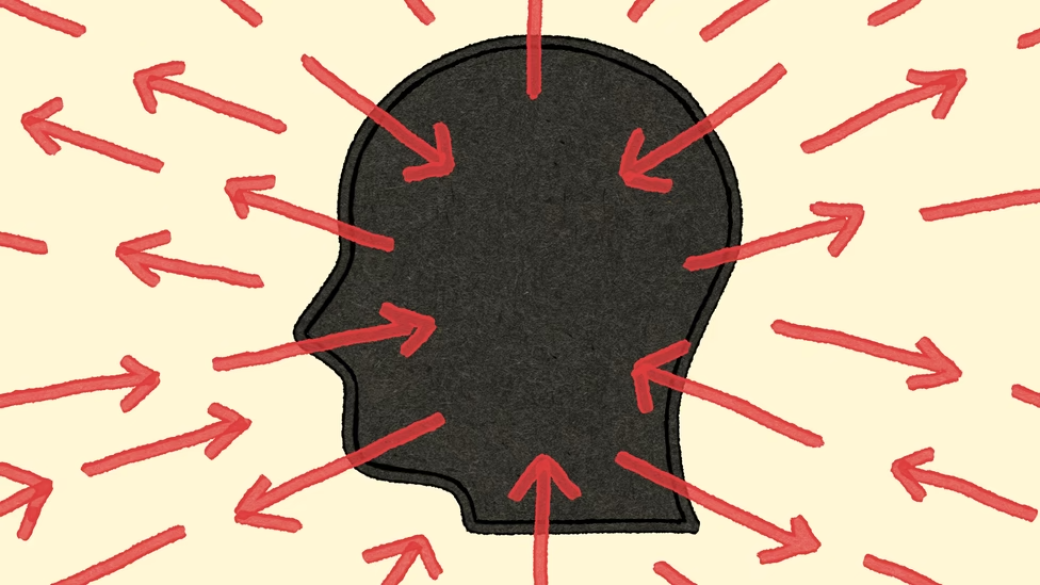Original Article: “ADHD’s Sobering Life-Expectancy Numbers”
When I stumbled upon Yasmin Tayag’s recent article in The Atlantic titled “ADHD’s Sobering Life-Expectancy Numbers”, it stopped me in my tracks. Her powerful exploration of how ADHD impacts lifespan—by up to seven years for men and nine years for women—felt like a wake-up call, not just for those living with ADHD but for everyone striving to better understand this condition. Having navigated my own journey with ADHD, diagnosed in my late twenties, I found her reflections deeply relatable and unsettling.
As Tayag poignantly notes, ADHD itself doesn’t directly cause early death. Rather, it’s the cascade of challenges stemming from the condition—impulsivity, risky behaviors, and difficulties with organization—that can affect nearly every aspect of life. The study she references, involving more than 30,000 British adults, brings these risks into sharp focus, quantifying the years lost to ADHD for the first time. For me, the article stirred a mix of emotions: validation, concern, and a renewed sense of urgency to approach ADHD with the seriousness it deserves.
Article Summary Table
| Key Finding | Details |
|---|---|
| Life Expectancy Reduction | 7 years shorter for men, 9 years shorter for women |
| Contributing Factors | Impulsivity, risky behaviors, missed appointments, health mismanagement |
| Study Details | 30,000+ British adults, first to directly quantify years lost to ADHD |
| Importance of Early Diagnosis | Early intervention helps mitigate risks and improve quality of life |
| Treatment Benefits | Medications and lifestyle changes reduce symptoms and improve outcomes |
The Hidden Challenges of ADHD
| Symptom | Potential Impact | Examples |
| Impulsivity | Risky behaviors, accidents | Reckless driving, unsafe sex |
| Forgetfulness | Missed appointments, unmanaged health | Skipped medical checkups |
| Poor organization | Financial instability, career struggles | Unpaid bills, missed deadlines |
One of the key takeaways from Tayag’s piece is how deeply ADHD’s symptoms intertwine with daily life and long-term health. Struggles with impulsivity and organization can lead to poor health habits, missed medical appointments, and even dangerous situations like reckless driving. These findings resonated with my own experience. Before my diagnosis, I often dismissed my forgetfulness or procrastination as personality quirks. But in hindsight, I see how these tendencies strained my relationships and even jeopardized my career.
Tayag highlights that people with ADHD are at a higher risk of depression, anxiety, and substance abuse—all factors that can compound the challenges of managing ADHD. I remember how, pre-diagnosis, I would spiral into bouts of frustration with myself, unable to understand why I couldn’t “just focus” like others seemed to. It’s sobering to consider how untreated ADHD can snowball into far graver outcomes over time, including lower socioeconomic status and health complications.
The Importance of Early Diagnosis and Treatment
| Benefit | Explanation |
| Increased Self-Awareness | Helps individuals understand their tendencies and manage them effectively |
| Mitigated Risks | Early diagnosis reduces long-term risks like impulsivity and health issues |
| Improved Quality of Life | Medications and therapy enhance focus and daily functioning |
As Tayag’s article emphasizes, an early diagnosis can be transformative. Knowing you have ADHD allows you to better understand your tendencies, mitigate risks, and adopt strategies that improve quality of life. This was certainly true for me. Once I began treatment, I noticed a profound shift. Medication and behavioral therapy helped me channel my thoughts and curb impulsivity in ways I didn’t think were possible. For the first time, I felt like I had control over my own mind.
Yet, as Tayag points out, many people—especially women and girls—are diagnosed later in life, if at all. This delay can mean years of frustration, guilt, and missed opportunities for self-care. Reading her comparison of ADHD to conditions like diabetes struck a chord with me. Just as diabetes requires both medication and lifestyle adjustments, so too does ADHD. The earlier you intervene, the better your chances of leading a healthier, longer life.
Shifting Perspectives on ADHD
Tayag’s article also calls out societal attitudes toward ADHD, many of which remain dismissive. She references the tendency to view ADHD as a “phase” or, worse, as an excuse for stimulant use. These stigmas can prevent people from seeking help or recognizing the condition’s seriousness. Personally, I’ve felt the sting of such judgments, especially when I’ve shared my diagnosis. The assumption that ADHD is “mild” or “overdiagnosed” undermines the very real challenges it brings.
Tayag’s article reminds us that ADHD isn’t just about attention struggles. It’s a complex neurodevelopmental disorder with far-reaching implications. Changing the narrative requires not only education but also compassion—for those with ADHD and for the broader conversation around mental health.
Hope and Responsibility
What gives me hope—and what Tayag’s article reinforces—is the potential for change. Treatment, awareness, and lifestyle adjustments can help people with ADHD reclaim years that might otherwise have been lost. I’ve seen this in my own life. Learning to manage my condition has not only improved my day-to-day functioning but also helped me envision a future with less regret and more intention.
Tayag’s closing thoughts resonate deeply: Diagnosing ADHD isn’t about labeling; it’s about empowerment. It’s about giving people the tools to navigate life’s challenges with greater clarity and resilience. Her article is a crucial reminder that ADHD is more than a childhood disorder—it’s a lifelong condition that deserves our attention and care.
Final Thoughts
Reading Yasmin Tayag’s piece in The Atlantic was both sobering and inspiring. It challenged me to reflect on my own journey and consider how society can better support those with ADHD. The findings she shares are a call to action—to prioritize diagnosis, treatment, and understanding. For anyone navigating life with ADHD, articles like hers remind us that while the risks are real, so too is the hope for a healthier, more fulfilling future.



Add a Comment